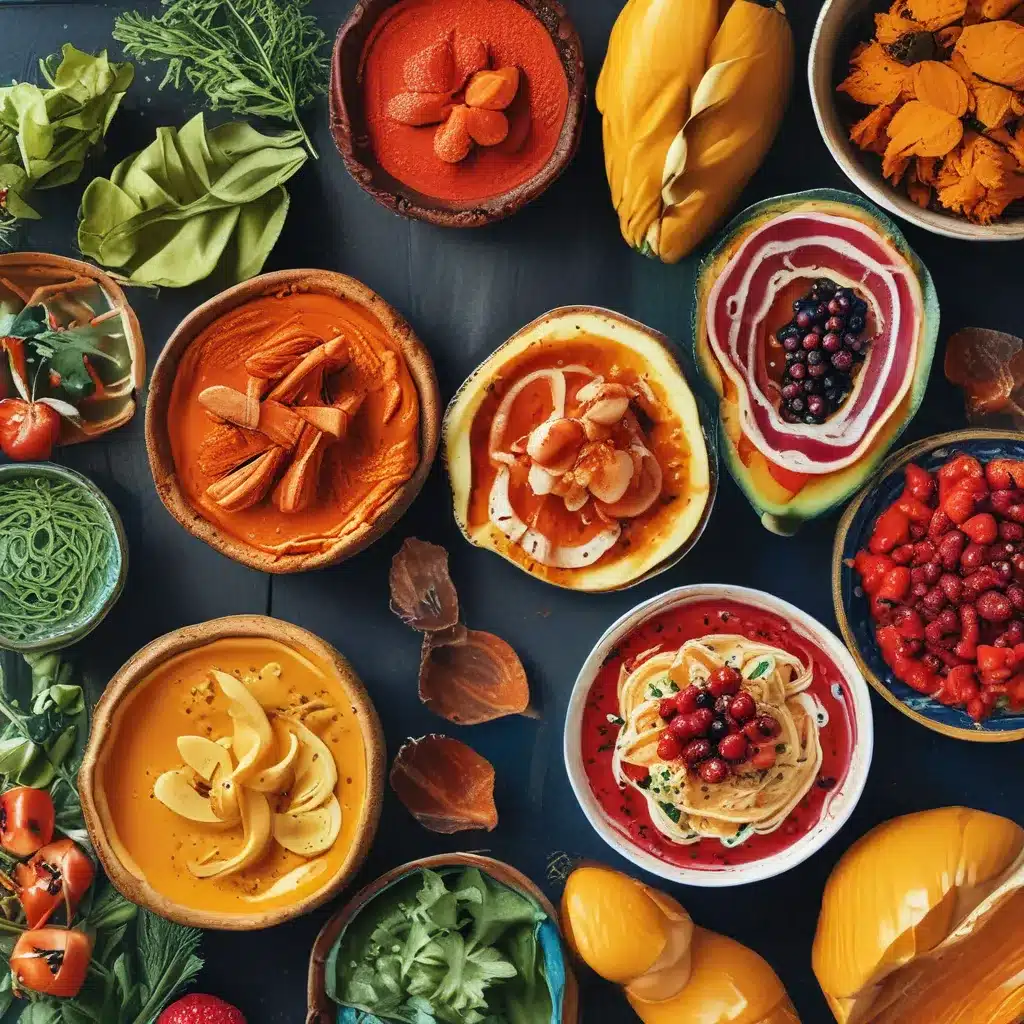
Uncovering the Richness of Moroccan Cuisine in New York City
As I step through the doors of El Bahia, the aromas of sizzling spices and tender, slow-cooked meats immediately transport me to the vibrant markets of Marrakech. This Moroccan restaurant in the heart of New York City has managed to capture the essence of a North African culinary heritage, inviting diners on a flavorful journey that transcends geographic boundaries.
Tracing the Roots of Moroccan Cuisine
Moroccan cuisine is a tapestry woven with the threads of diverse cultural influences, from the Berbers and Arabs to the Spanish and French. This rich culinary history has resulted in a harmonious blend of spices, techniques, and ingredients that have made Moroccan food a global sensation.
Chitra, a seasoned food writer and self-proclaimed Moroccan cuisine enthusiast, explains the depth of this gastronomic legacy: “Moroccan cooking is a symphony of flavors, each note carefully crafted to create a truly captivating experience. The use of fragrant spices like cumin, cinnamon, and saffron, combined with the slow-cooked meats and the vibrant array of vegetables, is what sets Moroccan cuisine apart.”
As I delve deeper into the menu, I’m struck by the intricate interplay of sweet and savory, the way the flavors dance on my tongue, transporting me to the bustling souks of Casablanca and the serene gardens of Fez.
Embracing the Art of Slow Cooking
At the heart of Moroccan cuisine lies the art of slow cooking, a tradition that has been passed down through generations. The tagine, a signature Moroccan dish, is a testament to this patience and attention to detail.
“The tagine is more than just a vessel for cooking,” explains Sage Walstrom, a Diné farmer and FLC alumnus. “It’s a symbol of the Moroccan way of life, where time is not a constraint but an invitation to savor the moment. The slow simmering of the ingredients, the melding of spices, and the anticipation of the final dish are all part of the Moroccan culinary experience.”
I can’t help but imagine the care and dedication that goes into each tagine, as the chef meticulously layers the flavors, allowing the dish to slowly come to life, like a symphony building to a crescendo.
Embracing Sustainability and Community
As I explore the menu further, I’m struck by the restaurant’s commitment to sustainability and its connection to the local community. The use of fresh, seasonal ingredients sourced from nearby farms and purveyors is not just a point of pride, but a reflection of the Moroccan ethos of respecting the land and the people who cultivate it.
“In Moroccan culture, food is not just sustenance; it’s a means of bringing people together,” says Chitra. “The idea of breaking bread and sharing a meal is deeply rooted in their traditions, and it’s something that El Bahia has beautifully captured in its approach.”
As I savor the aromatic tagine and the vibrant salads adorned with vibrant hues, I can’t help but feel a sense of connection to the land and the people who have nurtured these flavors for centuries.
Blending Traditions and Innovation
While El Bahia remains true to the time-honored traditions of Moroccan cuisine, it also embraces a spirit of innovation, seamlessly blending the old and the new.
“The chefs here have a deep understanding of the classics, but they’re not afraid to experiment and put their own twist on the dishes,” says Chitra. “They’re taking the foundations of Moroccan cooking and infusing them with modern, global influences, creating something that is truly unique and exciting.”
I’m intrigued by the fusion dishes that dot the menu, like the lamb tagine with a hint of harissa and the couscous salad with roasted vegetables and a zesty citrus dressing. These creative interpretations showcase the restaurant’s commitment to honoring tradition while embracing the boundless possibilities of culinary exploration.
Fostering a Sense of Community
As I sit in the warmly lit dining room, surrounded by vibrant textiles and the gentle sound of Moroccan music, I’m struck by the sense of community that permeates the space. This is not just a place to enjoy a meal, but a gathering place where people come together to share stories, forge connections, and immerse themselves in the richness of Moroccan culture.
“Food has a unique way of bringing people together, and that’s something that El Bahia really understands,” says Walstrom. “By creating a space where people can come and experience the warmth and hospitality of Moroccan hospitality, they’re fostering a sense of community that extends far beyond the confines of the restaurant.”
I can’t help but nod in agreement as I observe the lively conversations and the shared laughter that fill the air. This is not just a dining experience; it’s a cultural immersion, a chance to step into the vibrant world of Moroccan cuisine and the people who have nurtured it for generations.
Embracing the Future of Moroccan Cuisine
As I reluctantly bid farewell to El Bahia, I can’t help but feel a deep appreciation for the rich tapestry of Moroccan culinary traditions that have been so beautifully woven into the fabric of this New York City restaurant.
“Moroccan cuisine is not just a trend; it’s a living, breathing culinary tradition that continues to evolve and captivate the hearts and palates of people around the world,” says Chitra. “And places like El Bahia are at the forefront of this culinary revolution, channeling the vibrant flavors and the rich cultural heritage of Morocco into a truly unforgettable dining experience.”
As I step out into the bustling streets of New York City, I can’t help but feel a renewed sense of appreciation for the way food can bridge cultures, bring people together, and inspire a deeper connection to the world around us. And I know that whenever I crave the flavors of Morocco, I’ll be sure to find my way back to the warm embrace of El Bahia.


